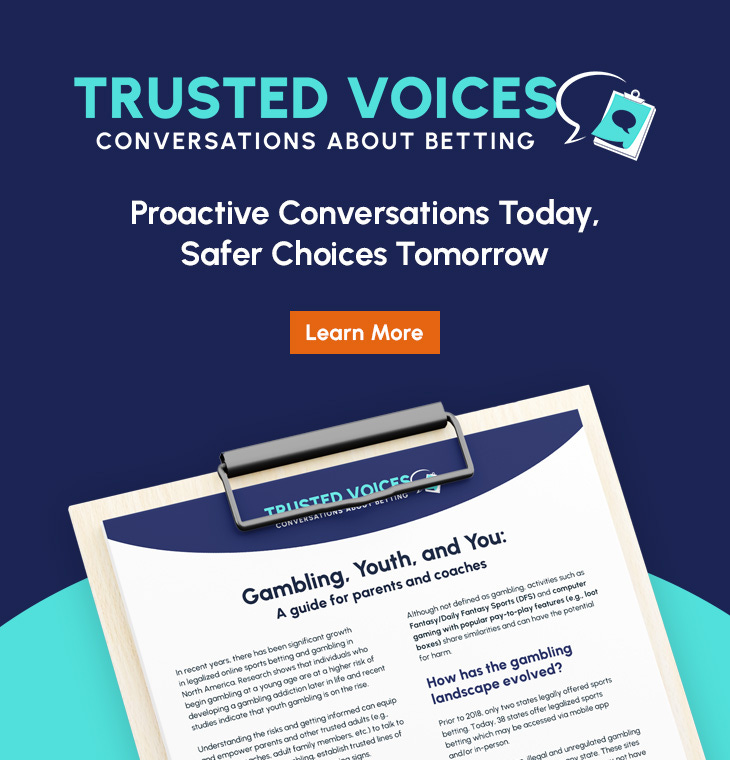Each Wednesday, I provide my thoughts in short-form audio on a topic in the US gambling industry.
A conservative think tank made the economic argument for sports event contracts via prediction markets. But to find economic utility in some sports markets, you have to squint and use your imagination. I take a closer look in this week’s Closing Line podcast.
Some backstory:
Gambling news roundup
FanDuel bans bettor for heckling Gabby Thomas at track event (ESPN): “FanDuel said it has banned a bettor who posted a video of himself heckling Olympic gold medalist Gabby Thomas at a recent track event and claimed "it made my parlay win." Thomas posted on X that the unnamed man ‘followed me around the track as I took pictures and signed autographs for fans (mostly children) shouting personal insults’ last weekend at a Grand Slam Track event in Philadelphia. Grand Slam Track said in a statement that it is conducting a ‘full investigation into the reprehensible behavior captured on video.’ ‘We are working to identify the individual involved and will take appropriate action as necessary,’ Grand Slam Track said. ‘We will implement additional safeguards to help prevent incidents like this in the future. Let us be clear, despicable behavior like this will not be tolerated.’”
There’s no place for any of this, and there should be a zero-tolerance policy across the board — from sportsbooks to social media to the events themselves. That abuse of athletes is undoubtedly increasing because of the presence of more sports betting — both regulated and unregulated. This trend can’t be met with a collective shrug as a price of doing business. While it remains difficult to address this proactively, strong reactive measures are the bare minimum.
NFL Partners with ICRG to Advance Research on Gambling Behaviors Among College Athletes and Students (NFL press release): “The National Football League today announced a partnership with the International Center for Responsible Gaming (ICRG) to address growing concerns around gambling behaviors among college athletes and students. The NFL Foundation will contribute $600,000 over three years to support independent, peer-reviewed research being led by the ICRG that aims to explore the prevalence, risk factors, and impacts of gambling behaviors in these populations. While initial studies have indicated that college athletes may be at higher risk for gambling problems, there remains a lack of comprehensive, current data on how college populations interact with online sports betting platforms. This NFL-ICRG initiative will empower independent researchers to explore a wide range of topics with the goal of informing data-driven prevention strategies, education, and policies aimed at reducing gambling-related harm. Grant applications will be peer-reviewed prior to the selection of the final recipient by the ICRG Independent Scientific Advisory Board. Additionally, the NFL will fund an update to the ICRG’s ‘Talking with Children About Gambling’ educational resources to equip parents, coaches, and educators with practical guidance to help prevent youth gambling exposure before college. Educational materials will be widely available online and distributed to schools, community sports organizations, and youth programs nationwide. ‘We’re proud to partner with the ICRG to advance research that can drive meaningful solutions and address a critical gap in the understanding of gambling behaviors among college athletes and students,’ said Anna Isaacson, NFL senior vice president of social responsibility. ‘This initiative reflects our ongoing commitment to promoting responsible gambling and fostering a safe and supportive environment for athletes, fans, and communities.’”
Connecticut Latest State to Approve Sweepstakes Banning Legislation (Sports Betting Dime): “Connecticut lawmakers have put their final stamp of approval on a bill to prohibit dual-currency sweepstakes gaming in the Constitution State. The Connecticut House of Representatives yesterday unanimously approved SB 1235, a bill that includes sweepstakes prohibition language, by a vote of 146-0. Connecticut is the second state this week, behind Louisiana, to send sweepstakes prohibition legislation to its governor to potentially be signed into law.”
The “winning streak” for sweeps after several “ban” bills didn’t make the finish line earlier this spring seems to be over. The sweeps industry can survive the loss of a small cohort of states between the legislative prohibitions and regulatory pushback. The question is if the momentum continues into 2026, and particularly if California or Texas act. If the big states remain open for business, sweeps is still viable.
Trump CFTC Pick Quintenz Will Get Confirmation Hearing On June 10 (Event Horizon): “The US Senate is finally starting the process of installing a new chair for the Commodity Futures Trading Commission. The confirmation hearing for Brian Quintenz, President Donald Trump’s nominee for the CFTC chairmanship, will take place on June 10 at 3 pm Eastern in the Senate Committee on Agriculture, Nutrition, and Forestry. … The confirmation process for Quintenz comes as all eyes are on the CFTC because of a pair of big issues: prediction markets and cryptocurrency.”
Ohio lawmakers hear concerns about allowing ‘casinos in every pocket’ (SBC Americas): “Ohio lawmakers heard testimony from several parties on Tuesday who oppose the idea of legalizing online casino gambling in the state.
Rep. Brian Stewart’s HB 298 is one of multiple proposals to bring online casino to the state that are currently in play in the legislature. It would provide for 11 licenses, one for each of the state’s casinos and racinos, which would cost $50 million for five years. Those existing retail operators could partner with one vendor to run their online casino sites, but would get only one skin.”
Canadian Senator Renews Push for National Sports Betting Ad Rules (Covers): “A Canadian lawmaker is renewing an effort to create national guidelines for advertising sports betting, which would include a focus on reducing the number of ads altogether. Ontario Senator Marty Deacon introduced Bill S-211 on May 28, "An Act respecting a national framework on sports betting advertising." As its name suggests, the legislation would force the federal government to craft national guidelines for the marketing of online sportsbooks to Canadians. And, among other things, that guidance could propose ways of ‘limiting the number, scope or location’ of those ads.”
Trusted Voices: Conversations About Betting from FanDuel
Trusted Voices: Conversations About Betting is designed to equip adults, including parents and coaches, with tools and resources to talk to young people about gambling, including information on warning signs, risks and proxy betting. The program is led by retired professional basketball player Randy Livingston and his wife, basketball agent Anita Smith, who share their personal stories related to problem gambling, with the hope of preventing others from experiencing similar harms. Learn more and join the conversation here.
Nobody understands gambling, especially in video games (Polygon): “In 2025, it’s very difficult not to see gambling advertised everywhere. It’s on billboards and sports broadcasts. It’s on podcasts and printed on the turnbuckle of AEW’s pay-per-view shows. And it’s on app stores, where you can find the FanDuel and DraftKings sportsbooks, alongside glitzy digital slot machines. These apps all have the highest age ratings possible on Apple’s App Store and Google Play. But earlier this year, a different kind of app nearly disappeared from the Play Store entirely. Luck Be A Landlord is a roguelite deckbuilder from solo developer Dan DiIorio. DiIorio got word from Google in January 2025 that Luck Be A Landlord was about to be pulled, globally, because DiIorio had not disclosed the game’s ‘gambling themes’ in its rating.”
This is a really good read, highly recommend a click. Gambling-style dynamics are all over games, and have been for a long time. There have been gambling games throughout the Super Mario franchise, for instance. Games where you buy and open packs of boosts are not that far removed from gambling and are common across today’s video game ecosystem. There are many games in the App Store that are far more worrisome on the gambling front than the two games mentioned in this story that generated blowback. I don’t have all the answers, but it feels like more needs to be done here, rather than throwing up our hands on the matter.
Also, if you like poker, the other game mentioned in the story, Balatro, is amazing. Go play it.
California-based gaming company operated as illegal gambling business, prosecutors say (CBS News): “Three people who California prosecutors say operated an illegal gambling business online have pleaded guilty in the case.
The U.S. Attorney's Office for the Eastern District of California and Arizona announced a plea deal Tuesday against SweepsCoach business operators James Mecham, Kurt Stocks and Heidi Edwards. As detailed by prosecutors, the El Dorado Hills-based SweepsCoach business helped set up gaming terminals at internet cafes across Arizona and California. The games played like video slot machines, with players buying credits to play for the chance of possibly winning more credits. The credits could then be exchanged for money at the cafes.”
Closing Line Consulting
I have been a trusted analyst and executive in the gambling space for more than a decade. I don’t just write a newsletter; I work with a number of companies in gaming. Learn more about CLC here.
Sponsor The Closing Line?
Want to reach an audience of thousands of people in the gambling industry? Email dustin@closinglineconsulting.com for more information, and see below.





















Share this post